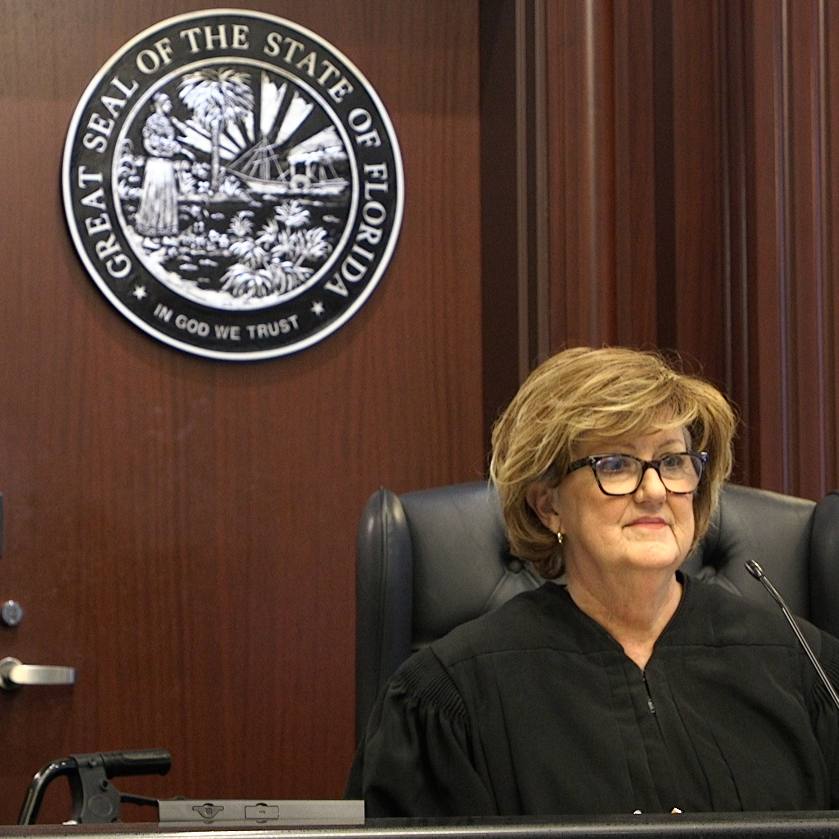Esophageal cancer can be deadly if it's not caught early. Fortunately for Mary Helen Duggar, her Mayo Clinic doctors found her cancer when it could still be treated. Today she's working to help others learn more about the disease.
It's been more than a decade since Missouri native Mary Helen Duggar received the news that she had esophageal cancer. This often-deadly form of cancer affects about 17,000 people each year in the United States, and it has a five-year survival rate of less than 20 percent.
Mary Helen was diagnosed in 2006. In February 2017, doctors surgically removed her esophagus — the tube that connects the throat to the stomach — and the upper part of her stomach during a procedure called an esophagectomy at Mayo Clinic's Florida campus.
As she began her recovery after surgery, which included learning to eat all over again, Mary Helen wanted to find others who had been through a similar experience.
"It took me two months before I could connect with others who had had these same surgeries," she says. "It's not like having your appendix out."
Today, Mary Helen, now 82, works to create awareness about esophageal cancer and a closely related condition called Barrett's esophagus — a pre-cancerous change in the lining of the lower esophagus. She leads a support group that meets quarterly at Mayo Clinic and visits with people after they've had surgery. In addition, when she and her husband travel, she frequently shares her story.
At risk from reflux
In 1988, Mary Helen started having severe heartburn and went to see a gastroenterologist in Arkansas, where she lived at the time. The doctor prescribed medication for acid reflux. And Mary Helen took that medication regularly for the next 20 years.
"It eased my heartburn, but it did not go away completely," she says.
Although Mary Helen didn't realize it at the time, her condition wasn't just uncomfortable, it was putting her at risk for bigger health concerns. Acid reflux is a significant risk factor for esophageal cancer.
"Dr. Wolfsen is always very thorough, very professional. He's very honest, and he discussed with me all the available treatment options. But I just wanted to get those cancer cells out of there." — Mary Helen Duggar
When the Duggars relocated to Florida in 2006, the retired high school media specialist had a checkup at Mayo Clinic. Gastroenterologist Herbert Wolfsen, M.D., performed an endoscopy. It revealed that Mary Helen had Barrett's esophagus and, in some areas, Barrett's adenocarcinoma, the most common type of esophageal cancer.
"While the vast majority of Barrett's patients never develop cancer, unfortunately, in Mary Helen's case, the Barrett's had progressed into cancer cells that invaded the deeper layers of the esophagus wall," Dr. Wolfsen says.
Finding cancer sooner
Mayo Clinic is one of the few centers in the nation that offer all of the available treatments for esophageal cancer. Mary Helen met with a team of experts, including oncologist Elizabeth Johnson, M.D., and now-retired thoracic surgeon John Odell, M.D., to review her treatment options. She chose surgery.
"Dr. Wolfsen is always very thorough, very professional. He's very honest, and he discussed with me all the available treatment options. But I just wanted to get those cancer cells out of there," she says. "They took out 19 lymph nodes during my surgery, and they were all clear. I'm one of the lucky ones."
Until recently, it was unusual to detect early stage cancer that had developed from Barrett's esophagus, as was the case with Mary Helen.
"The aim is for us to identify cancers at much earlier stages and hopefully prevent the cancer before it even develops." — Michael Wallace, M.D.
"Most patients were diagnosed at advanced stages when treatment options are very limited and long-term survival rates are grim," Dr. Wolfsen says.
Research advances, however, have led to improvements in diagnosis and care. Dr. Wolfsen, along with fellow gastroenterologist Michael Wallace, M.D., is currently conducting several clinical trials focused on early detection of cancerous and pre-cancerous cells in patients with Barrett's esophagus.
"This type of cancer is usually detected late because we don't have a good screening method that's universally applied to patients who are at high risk for developing and esophageal cancer," Dr. Wallace says.
A watchful approach
At Mayo Clinic, patients diagnosed with Barrett's esophagus begin a surveillance program that includes endoscopy with advanced imaging technologies, tissue biopsy and resection.
"The aim is for us to identify cancers at much earlier stages and hopefully prevent the cancer before it even develops," Dr. Wallace says.
Mary Helen has regular endoscopy examinations to confirm there's no recurrence of the Barrett's esophagus. She also takes medication to ensure her acid reflux is well controlled. She's happy to be able to see her grandchildren and great-grandchildren grow up, and grateful to the doctors who gave her that opportunity.
"Mayo saved my life," she says. "I wouldn't think of going anywhere else."
HELPFUL LINKS
- Read more about Barrett's esophagus and esophageal cancer.
- Learn about Mayo Clinic's Department of Gastroenterology and Hepatology.
- Explore Mayo Clinic's Florida campus.
- Connect with others talking about Esophageal Cancer on Mayo Clinic Connect.
- Request an appointment.








